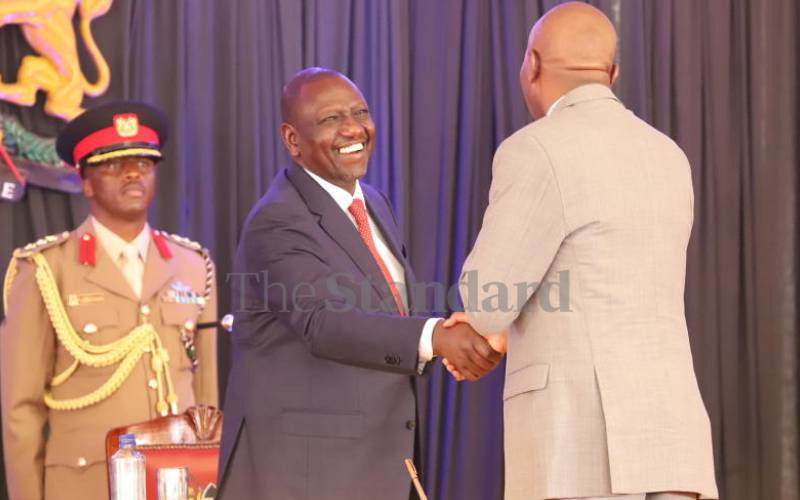
Another powerful minister during the Moi era was Moses Substone Budamba Mudavadi. He was so bold that at one time he told his detractors to "let Moi and Mudavadi rule Kenya". He was, however, a very effective minister who understood his docket and wouldn't allow his mouth to run riot like that of Moses Kuria, writes biographer and editor Caleb Atemi.
He froze in his tracks. His ears twitched and his legs trembled as he slowly turned round. He thought he heard wrong. He paused and keenly listened to the two cleaners mopping the floor in the VIP section of Jomo Kenyatta International Airport (JKIA). He even feigned a loud cough to try and interrupt their conversation.